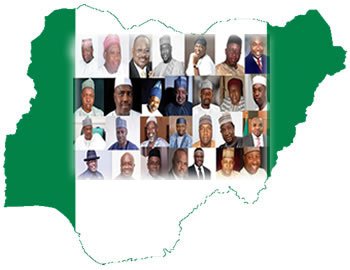
iN their desperation to buoy their internally generated revenue, some states in the country have devised disingenuous and punitive means of fleecing their citizens for some nebulous breaches of the law. For instance, the past few weeks have seen a flurry of arrests in Oyo State where motorists on the Ring Road axis and elsewhere in the state capital have been reined in for parking their vehicles by the sides of the road and given relatively heavy fines. The situation is the same in many other states.
It is true that the pressure on the states’ finances arising from the reduced allocations from the Federation Account is now becoming quite burdensome. But whether this is enough to make their response quite hysterical is another matter entirely. All of a sudden, the establishment’s agents are out on the open streets, desperately baying for blood and hounding citizens. The state, no doubt, has a duty to collect taxes and fines from the citizens as required by the tenets of public finance. But it should not get hysterical or paranoid in accomplishing this statutory duty. Taxes and fines are the dues of a functional state that is visibly impacting on the lives of its citizens, not straws to be clutched at by financially distraught entities that are gasping for breath and seeking bailouts.
Some contemporary examples will suffice. In Ondo State where a similar law operates, the government had provided public facilities where motorists can, for a token, park their vehicles without fearing harassment from state agents. It was after the government had built the parks and sensitised the public that it started exacting fines from errant motorists. The situation is the same in Lagos State, where there are even private parks which pay taxes to the government. It would seem as if this lesson is lost on some states which would rather prey on their citizens through punitive sanctions and without providing services that will prevent these inadvertent infractions.
States must devise functional relationships with their citizens by providing services and educating them with the goal of improving their lives. We do not believe that the states should see their citizens as vulnerable and then proceed to exploit them in order to keep government financially viable. In certain circumstances, even strangers and visitors are not exempt from this state terrorism and exploitation.
Ideally, the goal of the state is to satisfy the yearnings of the citizens before demanding for payment for services rendered, not taking a whip across their bare backs and leaving them in excruciating pain. The pain has even been exacerbated by the current downturn and unemployment in the economy which have left the majority of citizens poorer. A defaulting state that exacts punitive fines from citizens cannot but look fascist to the people it claims to serve. Since this is not the raison d’être of government, its apparatchiks should slow down in the consistent and sustained efforts to misrepresent the ideals of a serious government.
In the desperate revenue drive, it is doubtful that any thought was spared for motorists with vehicles that have broken down through no faults of theirs. Are such motorists also liable to pay these heavy fines? It seems to us that there is something quite odd with a government that registers company premises without vehicle parking facilities, obtains taxes from them and then pursues the company’s customers, fleecing them for illegal parking!
END

Be the first to comment